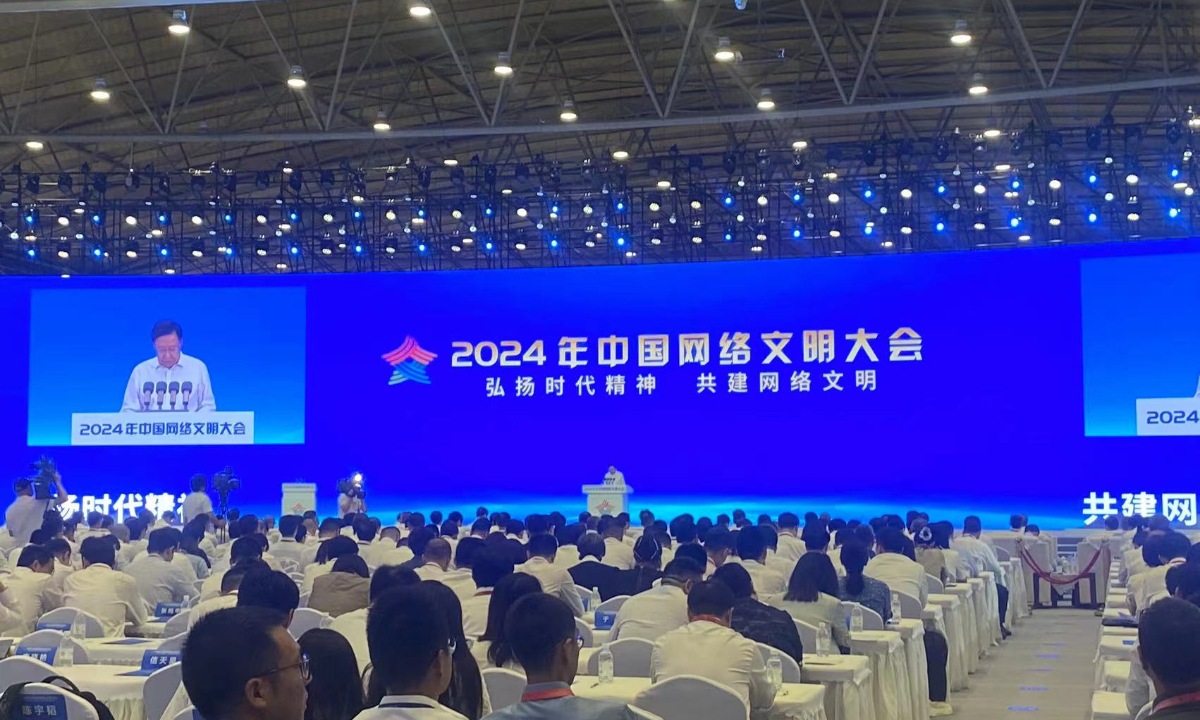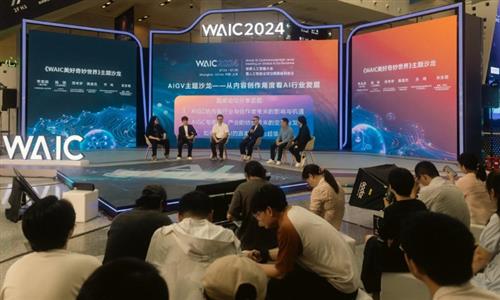AIGC faces multiple hurdles in replacing human creators despite digital transformation: expert at internet civilization conference

2024 China Internet Civilization Conference. Photo: Zhang Wanshi/GT
AI-generated content (AIGC) still faces multiple challenges in replacing human creators despite the fact that it has transformed the way digital content is produced, Ding Wenhua, an academician of the Chinese Academy of Engineering, said on Thursday during the sub-forum of 2024 China Internet Civilization Conference held in Chengdu, Southwest China's Sichuan Province.
Ding said that at this stage AIGC struggles to replace human involvement in video production. He noted that some of the AI models still fall short in reflecting visual semantics through multiple shots, such as montage techniques, and lack the ability to convey complex stories through video, remaining significantly behind human capabilities.
Compared with large language models, large vision models are significantly more complex. The development of AIGC encounters numerous technical challenges, including those related to computing power, data, and cost, Ding said.
In less than two years, AI big models have made tremendous progress. There is potential for rapid advancements that could revolutionize production capabilities. With the current pace of development, the possibilities for AI are full of room for growth, according to Ding.
During the sub-forum, experts also pointed out that AI is more than just an independent industry, and it is set to transform various sectors and lifestyles, infusing them with new energy.
Additionally, the development of AI has increasingly infused it with cognitive and emotional tendencies. In an era of information overload, the rapid expansion of data in AI industry also affects social cognition and inclinations of the public, one of the experts said.
The 2024 China Internet Civilization Conference opened on Wednesday. Themed on promoting the spirit of the times and jointly advancing civility in cyberspace, the two-day event has brought together delegates from central and local authorities, major news portals, as well as heads of online social organizations and internet businesses, scholars and internet celebrities.
Delegates to the conference believe that advancing cyberspace civility is vital for adapting to the new trends of rapidly developing information technology. It is also an essential part of building a strong socialist culture and a strong cyber country, as reported by the Xinhua News Agency.
They have also called for further efforts to advocate socialism and augment positive energy in cyberspace, build a positive and healthy internet culture, and strengthen cyberspace governance.


